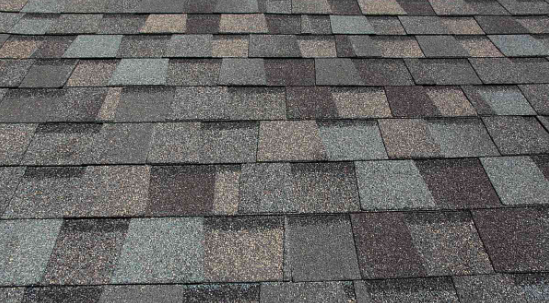The Pros and Cons of Asphalt Roofing Shingles: A Comprehensive Guide
by siteadmin

Asphalt roofing shingles have long been a popular choice for homeowners, offering a balance between affordability, durability, and versatility. Before embarking on a roofing project, it’s essential to understand the pros and cons of asphalt shingles to make an informed decision. In this comprehensive guide, we will explore the advantages and disadvantages of asphalt roofing shingles, helping homeowners weigh their options for a roofing material that best suits their needs.
Pros of Asphalt Roofing Shingles:
Affordability:
Cost-Effective: Asphalt shingles are one of the most budget-friendly roofing options, making them an attractive choice for homeowners looking for a cost-effective solution.
Versatility in Design:
Wide Range of Styles: Asphalt shingles come in various styles, colors, and textures, allowing homeowners to achieve the desired aesthetic for their homes, whether it’s a traditional, modern, or eclectic look.
Ease of Installation:
Quick Installation: Asphalt shingles are relatively lightweight and easy to install, contributing to faster and more cost-efficient roofing projects.
Durability:
Resistant to Harsh Weather: High-quality asphalt shingles are designed to withstand harsh weather conditions, including rain, snow, and hail.
Fire Resistance: Asphalt shingles are typically rated as Class A for fire resistance, providing an added layer of safety for your home.
Repair and Replacement:
Easy to Repair: In the event of damage, individual asphalt shingles are easy to replace, allowing for cost-effective repairs without having to replace the entire roof.
Cons of Asphalt Roofing Shingles:
Limited Lifespan:
Shorter Lifespan: Compared to some other roofing materials, asphalt shingles have a relatively shorter lifespan, typically ranging from 15 to 30 years depending on the quality.
Environmental Impact:
Not Environmentally Friendly: Asphalt shingles are petroleum-based and not as environmentally friendly as some alternative roofing materials. However, efforts are being made to recycle old shingles to reduce waste.
Susceptible to Algae and Moss Growth:
Prone to Staining: In humid climates, asphalt shingles can be susceptible to algae and moss growth, leading to unsightly stains on the roof.
Vulnerability to High Winds:
Wind Resistance: While asphalt shingles are generally durable, they may be vulnerable to high winds, especially if not properly installed.
Heat Absorption:
Heat Absorption: Asphalt shingles can absorb and retain heat, potentially contributing to higher energy bills for cooling in warmer climates.
Choosing the right roofing material is a significant decision for homeowners, and understanding the pros and cons of asphalt roofing shingles is crucial in making an informed choice. While they offer affordability, versatility, and ease of installation, homeowners must consider factors such as lifespan, environmental impact, and susceptibility to certain weather conditions. By weighing these aspects, homeowners can determine if asphalt shingles, as outlined in Asphalt Roofing Shingles: Benefits and Maintenance Guide, align with their preferences and long-term roofing goals.
Asphalt roofing shingles have long been a popular choice for homeowners, offering a balance between affordability, durability, and versatility. Before embarking on a roofing project, it’s essential to understand the pros and cons of asphalt shingles to make an informed decision. In this comprehensive guide, we will explore the advantages and disadvantages of asphalt roofing…
Recent Posts
- Roofing Company Savannah Sheds Light on the Lifespan of Roofs: How Long Should a Roof Last?
- Choosing the Best Gutters for Your Jacksonville FL Home
- Choosing the Best Gutters for Your Chicago Home
- Exploring the Drawbacks of Duct Cleaning: Insights from Air Vent Cleaning Charlotte
- Sons of Monaco Painting Unveils the Ultimate Solution: Roll vs. Spray for Exterior Paint
